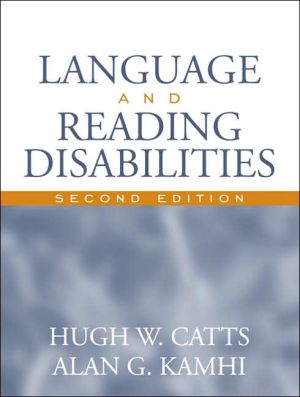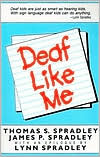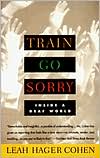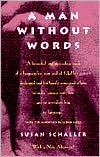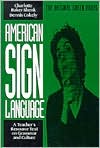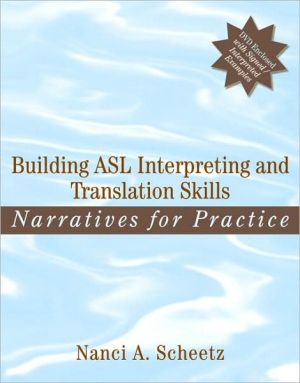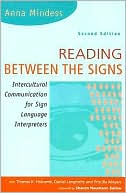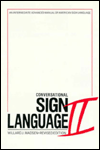Language and Reading Disabilities
Written by leading experts in the field, Language and Reading Disabilities, Second Edition, is the most up-to-date book on the nature and treatment of reading disabilities.\ Increased evidence has continued to mount in support of the language basis of reading disabilities, and much has been learned in the past decade about how children learn to read. With a strong clinical and research basis, the book provides a broad perspective of language problems associated with reading disabilities. It...
Search in google:
Written by leading experts in the field, Language and Reading Disabilities, Second Edition, is the most up-to-date book on the nature and treatment of reading disabilities.Increased evidence has continued to mount in support of the language basis of reading disabilities and much has been learned in the past decade about how children learn to read. With a strong clinical and research basis, the book provides a broad perspective of language problems associated with reading disabilities. It includes the latest theories of reading development, causes of reading disabilities, developmental changes in reading disabilities, and theoretically-motivated research to improve phonological processing, decoding, comprehension, writing, and spelling abilities.The book compares spoken and written language and notes similarities and differences. The acquisition of reading and reading-related language abilities are discussed. In the second half of the book, recognized experts in the areas of assessment and remediation of reading and writing disorders discuss the identification, assessment, and treatment of reading and writing disorders.
PrefacexiAcknowledgmentsxiiiContributors and Affiliationsxv1Language and Reading: Convergences and Divergences1Defining Language1Phonology2Semantics2Morphology2Syntax3Pragmatics3Defining Reading3Models of Spoken and Written Language Comprehension4Comprehending Spoken and Written Language5Perceptual Analyses5Word Recognition7Discourse-Level Processes10Differences between Spoken and Written Language16Physical Differences17Situational Differences18Functional Differences18Form Differences19Vocabulary Differences20Grammatical Differences21Processing Differences21Basic Factors in Reading and Language Development22Summary23References232Reading Development26Emergent Literacy Period (Birth-Kindergarten)27Joint Book Reading27Learning about Print30Summary32The Development of Word Recognition Skills32Logographic Stage33Alphabetic Stage33Orthographic Stage and Automatic Word Recognition35Problems with Stage Theories of Word Recognition37The Self-Teaching Hypothesis37The Development of Reading Comprehension41Alternative Views of Comprehension44Summary46References473Defining Reading Disabilities50Historical Basis of Reading Disabilities50Early Reports51Orton52Johnson and Myklebust53The Modern Era53Terminology54Prevalence55Gender Differences56Defining Reading Disability57Exclusionary Factors58IDA Definition62Other Language-Based Reading Disabilities66Summary67References674Classification of Reading Disabilities72Subtypes Based on Comprehension versus Word Recognition Problems73Classification Studies77Subtypes Based on Nature of Word Recognition Deficits78Reading Styles78Dysphonetic, Dyseidetic, and Alexic Subgroups79Deep, Phonological, and Surface Dyslexia80Heterogeneity without Clustsers80Hard versus Soft Subtypes82Rate-Disabled versus Accuracy-Disabled Readers84Combining Subtypes in Research and Practice86Clinical Implications87References895Causes of Reading Disabilities94Extrinsic Causes of Reading Disabilities94Early Literacy Experience95Reading Instruction95Matthew Effects97Intrinsic Causes of Reading Disabilities97Genetic Basis98Neurological Basis99Visual-Based Deficits102Auditory Processing Deficits106Attention-Based Deficits107Language-Based Deficits108References1166Assessment and Instruction for Phonemic Awareness and Word Recognition Skills127Assessment of and Instruction in Phonemic Awareness127The Importance of Phonemic Awareness in Learning to Read128Purposes for Assessment of Phonemic Awareness130Procedures and Measures Used to Assess Phonemic Awareness131Instruction in Phonemic Awareness132Procedures and Materials to Stimulate Growth of Phonemic Awareness137Assessment of and Instruction in Word Recognition139Issues in the Assessment of Word Recognition141Commonly Used Measures of Word Recognition Ability142Instruction in Word Recognition144Issues for Future Research and Development150References1517Assessing and Remediating Text Comprehension Problems157Comprehending Narrative and Expository Texts159Information Used in Text Comprehension159Narrative and Expository Variations in Text Grammars and Schema Content161Metacognitive Processing in Text Comprehension165Assessing Language and Cognitive Skills for Text Comprehension167Assessing Literate Language Style168Assessing Knowledge of Narrative Content Schemata and Text Grammar Schemata169Assessing Metacognition182Facilitating Text Comprehension190Developing a Literature Language Style191Developing Narrative Schema Knowledge197Facilitating Metacognition212Summary222References222Appendix229Children's Materials229Cinderella Stories2318Learning to Write233A Framework for Writing234Context and Purpose: Where, for Whom, and Why?235Linguistic Form235The Process of Writing236Writing in the Future239Learning to Write: Transcription240Handwriting240Spelling241Learning to Write: Composing244Emergent Writing, Age 4 to 6 Years244Conventional Writing: The Early School Years246Learning the Genres of School Writing249Writing Standards and Assessments in Schools252Learning the Grammar of Writing254Learning the Process of Writing260Gender Differences in Writing Development262Writing Problems of Children and Adolescents with Reading Disabilities263Product-Oriented Research264Process-Oriented Research265Summary267References2689The Right Stuff for Writing: Assessing and Facilitating Written Language274Assessing Student Writers276A Framework for Writing276Types of Writing Assessments278Scoring Systems280Developmental Rubrics282Metacognitive Awareness303Facilitating Writing304Facilitating Skills and Knowledge308Facilitating Self-Regulatory Writing Strategies323Summary329AppendixesAExample Writing Prompts332BPortfolio Writing Assessment333CAnalytic Scoring Guidelines334DAnalytic Scoring Guide for Informational Writing335EPredicate Transformations Reflecting Landscape of Consciousness336FCoding Chart for Writing Interview338GThe Three Little Peccaries and the Big Bad Jaguar340References341Computer Programs345Index349
